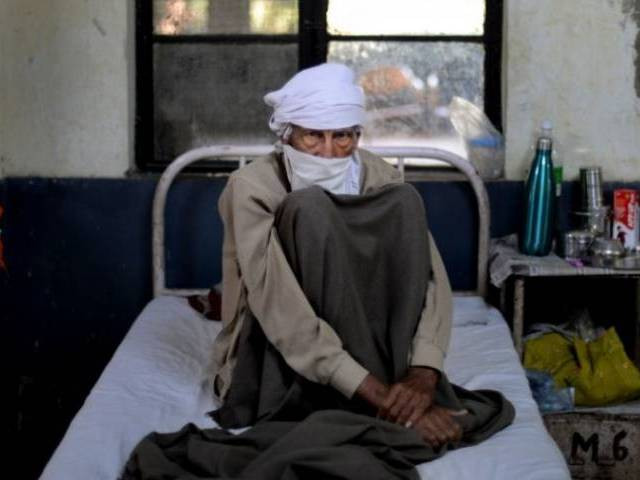Tuberculosis: Kiani vows to spare no effort to eradicate TB by 2030
Pakistan ranked fourth in prevalence of drug-resistant TB

PHOTO: FILE
This was stated by Federal Health Minister Aamer Mehmood Kiani in a high-level meeting with the World Health Organisation (WHO) officials from their Eastern Mediterranean Regional Office (EMRO) headquarters.
The meeting discussed putting greater focus on tuberculosis (TB) higher up on the political agenda of the government through the and to increase the commitment of all stakeholders to end the disease by 2030.
Moreover, it discussed attracting more partners for the TB control programme in Pakistan, empowering affected communities towards ending the TB epidemic in the country.
The meeting also aimed at increasing public awareness regarding the threat of TB, combatting the stigma and discrimination against TB patients, mobilising domestic resources to fight the disease and reducing the catastrophic treatment cost on TB affected families.
The health minister said that there was a need to promote health in all policies to address social, environmental and economic determinants of health.
He further said that the government is expanding health insurance to the poorest families in all districts of the country and protect them from catastrophic health expenditure. Moreover, the ministry has set up a national Integrated Disease Surveillance and Response (IDSR) system for the prompt and efficient response during disease outbreaks.
The health minister said TB is one of the priority diseases for prevention and control. The government is fully committed to the SDGs and ending TB strategic goals. We are in a continuous struggle in setting the strategic directions to find the missing 140,000 and positioning ourselves to tackle the emerging threat of the multi-drug resistant TB. Some of the measures have already been taken and some are planned.
The minister also talked about improvement in the health system, structure referral linkages between primary- secondary and tertiary levels of health care delivery and encouraging public-private partnership.
He also touched on the ongoing revamp of the Lady Health Worker (LHW) programme to improve community-level essential health services.
Kiani said that they will develop multi-sectoral collaboration linkages with other ministries and departments for devising an effective response regarding TB control.
Little awareness leads to an increase in TB cases
Meanwhile, health experts have expressed concerns over the growing number of TB cases in the country, noting that every year 0.5 million new cases emerge in Pakistan.
During the 61st quarterly inter-provincial meeting in Islamabad, experts said that there were as many as 140,000 patients who were unaware of the disease. They added that due to lack of awareness, TB cases have seen a substantial spike in recent years.
Pakistan is also estimated as having the fourth highest prevalence of multidrug-resistant TB globally. They said that the key reasons for the emergence of drug resistance from of TB included late diagnosis, unsupervised, inappropriate and inadequate drug regimes, poor follow-up and lack of a social support programme for high-risk populations.
They said that the TB treatment programme, the Directly Observed Treatment Short-Course (DOTS) was a ray of hope for patients and the problem was that the patients usually stop using medicines before their dose is completed due to which the virus gets stronger, they noted.
Experts said that the high prevalence of disease rate was making Pakistan fifth among high burden countries worldwide and accounts for 61 per cent of the TB burden in the region.
Published in The Express Tribune, December 7th, 2018.



















COMMENTS
Comments are moderated and generally will be posted if they are on-topic and not abusive.
For more information, please see our Comments FAQ